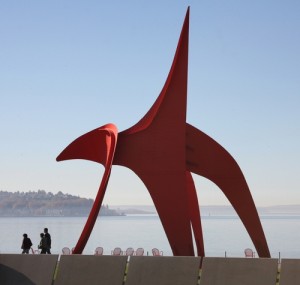Potential Energy
is energy stored within a system.
More specifically, energy of position.
He is on his knees,
she is on her back.
There is potential. There is energy.
Like all things, mass plays a role.
As does his height above her
and the gravitational acceleration
with which the events occur.
She is left with bruises
of force and potential.
If he calls tomorrow it is only one
possible outcome.
Another is that he marries her friend
or takes his dog to the park.
An object may have potential energy
as the result of many variables:
gravity, electricity, magnetic pull, or elasticity.
All of these are useful when converting
potential energy to kinetic.
Her elasticity impresses him;
he calls tomorrow.
The outcome is measured in jewels.
“Potential Energy” previously appeared in Superstition Review and Floating Bridge Review.
Meghan McClure lives in Auburn, Washington and studies at the Rainier Writing Workshop, the MFA program at Pacific Lutheran University. She helps edit A River & Sound Review and her work has been published in Mid-American Review, roger: an art & literary journal, Superstition Review, Bluestem, and Floating Bridge Review.

